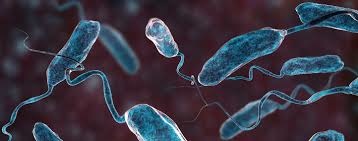Dr. Nguyen Do Van Anh, head of the School Nutrition Department at the National Institute of Nutrition, explains that every food provides specific nutrients. No single food is perfect or can provide all the nutrients a preschooler needs. Therefore, the smartest approach is to incorporate a variety of foods, regularly changing meals, and limiting unhealthy options to promote healthy development and prevent diseases early on.
Foods to limit:
Sugary foods such as sugary drinks, candy, ice cream, and foods with more than 22.5g of sugar per 100g.
Foods high in saturated and trans fats like snacks, potato chips, deep-fried foods, fast food, street food, grilled dishes, some pre-packaged foods, pastries, and cookies. Limit foods with more than 17.5g of total fat or 5g of saturated fat per 100g.
Foods high in salt include salted and fermented foods (pickled vegetables, chili sauce, ketchup), dried foods (dried fish, shrimp, squid, beef jerky), processed foods (sausages, cold cuts, bacon), braised, roasted, and rimmed dishes, and pre-packaged foods (instant noodles, chips, canned meat/fish/vegetables). Avoid foods with more than 1.5g of salt or 0.6g of sodium per 100g.
A reasonable and scientific diet is the foundation for a preschooler's overall development. Choosing appropriate foods, ensuring a balance of nutrients, and avoiding harmful foods will contribute to their comprehensive growth, establish healthy habits, and prevent non-communicable diseases.
Recommended foods:
Grains, tubers, and their products (rice, bread, pho noodles, vermicelli, corn, sweet potatoes, taro, potatoes) are staples providing primary energy, plant-based protein, B vitamins, minerals, and fiber. Prioritize whole grains like brown rice, oats, millet, corn, whole wheat bread, and brown rice or potato-based noodles, as their bran layer contains more vitamins, minerals, and fiber than refined grains.
Leafy greens, vegetables, and ripe fruits are crucial, supplying vitamins, minerals, fiber, and antioxidants essential for boosting immunity, aiding digestion, and supporting growth.
Meat, seafood, eggs, and protein-rich nuts are sources of animal protein, containing essential amino acids the body cannot synthesize on its own. Protein-rich nuts like beans, peanuts, and sesame seeds provide plant-based protein. While plant-based protein may lack certain essential amino acids, they offer a good amount of lysine. Combining animal and plant protein sources creates a balanced diet.
Milk and dairy products are highly nutritious, containing protein, fat, vitamins, and minerals. Milk is particularly rich in calcium, has a suitable calcium/phosphorus ratio, and contains vitamins A, B2, and B12, vital for growth, health, and disease prevention.
Foods with healthy fats contain monounsaturated and polyunsaturated fats found in sunflower, soybean, sesame, olive, and canola oils, avocados, cashews, almonds, flax seeds, walnuts, and fish (salmon, sea fish). While some parents believe saturated fats are "bad" and should be eliminated, children aged 3–5 still need a certain amount for overall development. The key is to choose natural, unprocessed sources of saturated fats and balance them with unsaturated fats from vegetable oils, fish, and nuts. Saturated fats are present in fatty meat, egg yolks, and dairy products, which are nutritious foods recommended for young children in appropriate amounts.
Le Nga












